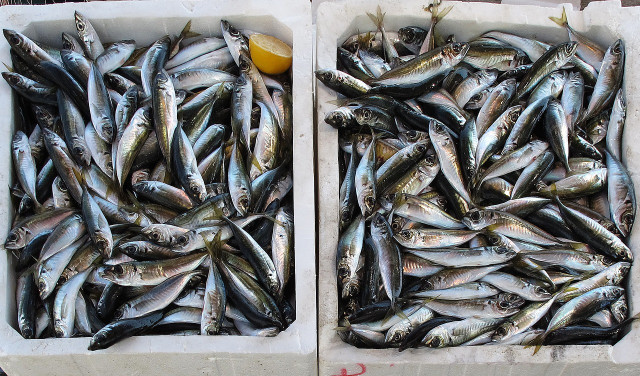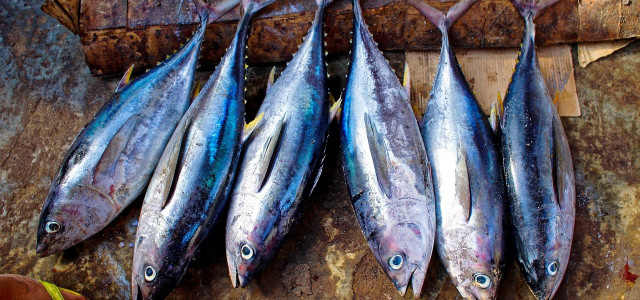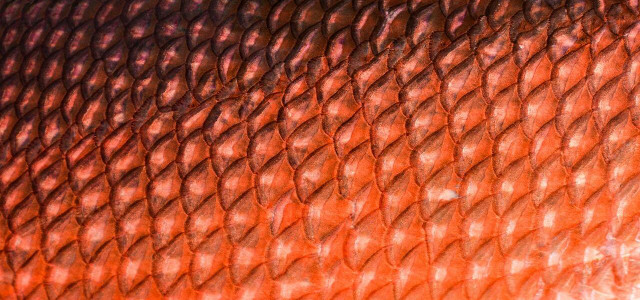You've likely heard of fish collagen and its many benefits. But what are the side effects and environmental impacts? We'll take a closer look.
Fish collagen, sometimes known as marine collagen, is made from fish skin. Collagen is an important protein that naturally occurs in the body and is found in skin, organs, muscles, tendons and bones.
As we age, our bodies produce less collagen. This change inevitably leads to wrinkles, weaker muscles, as well as tight ligaments and joints. To help reduce these signs of aging, many people take dietary supplements or apply cosmetics containing collagen. Usually, the collagen in these products comes from pig or cow skins.
The FDA does not regulate collagen supplements, and the research is still out on whether ingesting fish collagen has any real benefits. While cosmetics containing fish collagen are popular, many doctors agree that other treatments, such as vitamin C and retinol, may have the same positive effects. Furthermore, these treatments may boost your body’s natural collagen production and can soothe the inflammation that depletes collagen levels.
Whether you opt for a fish collagen supplement or a topical cream, be sure to consult with a health professional to find the best treatment for your particular needs.
Benefits & Side-Effects Of Fish Collagen



(Foto: CC0 / Pixabay / anaterate)
Benefits
Fish collagen may help delay certain signs of aging like wrinkles, joint tightness and inflammation, and muscle weakness. Not only that, but fish collagen also provides an alternative for people who find pig and cow collagen problematic — whether because of their individual cultural or religious concerns or aversion to the meat industry as a whole. Furthermore, many consumers view fish collagen as a more sustainable alternative since the fish skin and scales needed to produce commercial fish collagen can be made from by-products of the fishing industry.
Side Effects
Marine collagen is generally well-tolerated, but in some instances, fish collagen supplements can leave an unpleasant taste in the mouth. There have also been reports of digestive problems like heartburn, bloating, diarrhea and constipation. It should be noted, however, that these reactions are outliers, as collagen typically improves digestion rather than disturbs it. Those with fish allergies should exercise caution and avoid fish collagen. When in doubt, speak to a healthcare professional.
Fish Collagen: Environmental Impact



(Foto: CC0 / Pixabay / silviarita)
While many fish collagen supplements come from wild fish, a significant portion is produced using farmed fish. Wild fish stock lives on an entirely natural diet, usually free of artificial impurities. Farmed fish are often raised on a diet of man-made pellets comprising plant and animal matter. Farmed fish are also typically raised in very tight spaces and exposed to antibiotics to reduce death from disease.
Scales and skin that are harvested to make collagen go through hydrolysis. This process uses significant water, heat energy and an acid solution. That said, it is worth noting that the scales and skin would normally be discarded if not used to make collagen.
Fishing industry waste is a problem, and numerous studies, projects, and local and international authorities are looking for new ways to use fish industry by-products. These moves are driven by the ever-growing need for communities to reduce the waste they generate.
Most commercial fish collagen is sourced from Canada, where local fisheries are required by law to follow guidelines stipulated by Fisheries & Oceans Canada (also known as the DFO). These guidelines require that all operators adhere to sustainable practices, which include avoiding dolphins and other aquatic species that are endangered or at risk of becoming endangered. The DFO also promotes marine conservation programs and sets fishing and harvesting limits on aquatic species to ensure that stocks are not depleted over time.
The annual waste produced by the fish processing industry represents roughly 25 percent of total production. This waste mainly consists of bones, skin, scales and fins, which constitute over 70% of fish bodies. A portion of this can be repurposed as feed and fertilizer, but vast amounts are thrown away — creating a massive environmental burden.
Since fish waste primarily comprises skin, bones and scales (the primary source of marine collagen), if managed correctly, it could become an eco-friendly and low-cost collagen source over the long term.
In any case, it is essential to do your research before committing to a collagen supplement or cosmetic. Sustainable products are available; checking the packaging is the best way to determine whether the ingredients are sustainably sourced. More importantly, if you’re looking for fish collagen for a health issue instead of a cosmetic one, chat with your doctor to find the treatment (or alternative) that works for you.
Read more:
- 8 Things You Can Do to Save the Ocean
- What is a Pescatarian Diet? Health Benefits & Impact on the Environment
- Can You Eat Jellyfish? Health Benefits & Safety Info
- Why You Really Shouldn’t Eat Pangasius
** Links to retailers marked with ** or underlined orange are partially partner links: If you buy here, you actively support Utopia.org, because we will receive a small part of the sales proceeds. More info.
Do you like this post?







